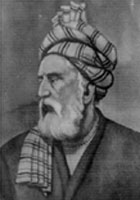Posts
- Small Fiber neuropathy
- neurological effects of CIDP
- Colostruma
- Lupus page
- SLE Home page
- Caveman Diet
- Homocysteine Lowering diet
- Iodine deficient diet
- Epilepsy diet
- Food additives
- No artificial sweetener in diet
- Vinegar Benefits'
- Loss of apetitite
- Breast cancer herbs
- The best lifestyle
- DeTox diet
- Avoid Gum
- Right Fat Diet
- chemicals in French fries
- Electrical Stimulation Therapy
- Magnets and ageing
- Cupping
- Schizophrenia research here to stay
- autoimmune dementia
- End To Parkinson
- Kamut Grain
- LazyEye
- What is Chronic Fatigue
- irregular periods
- Myasthenia diet
- cancer survivor
- Tomato as a medicine
- Prevent Osteoporosis
- Some rheumatic disorders
- Polymyositis
 Firdowsi was born between the year 932 A. D. and 941 A. D. in a city of Khorasan called Tus (now part of Iran). He is regarded as one of the major poets of Khorasan and the author of the famous epic of Shah Namah (The Book of Kings).
Firdowsi was born between the year 932 A. D. and 941 A. D. in a city of Khorasan called Tus (now part of Iran). He is regarded as one of the major poets of Khorasan and the author of the famous epic of Shah Namah (The Book of Kings).